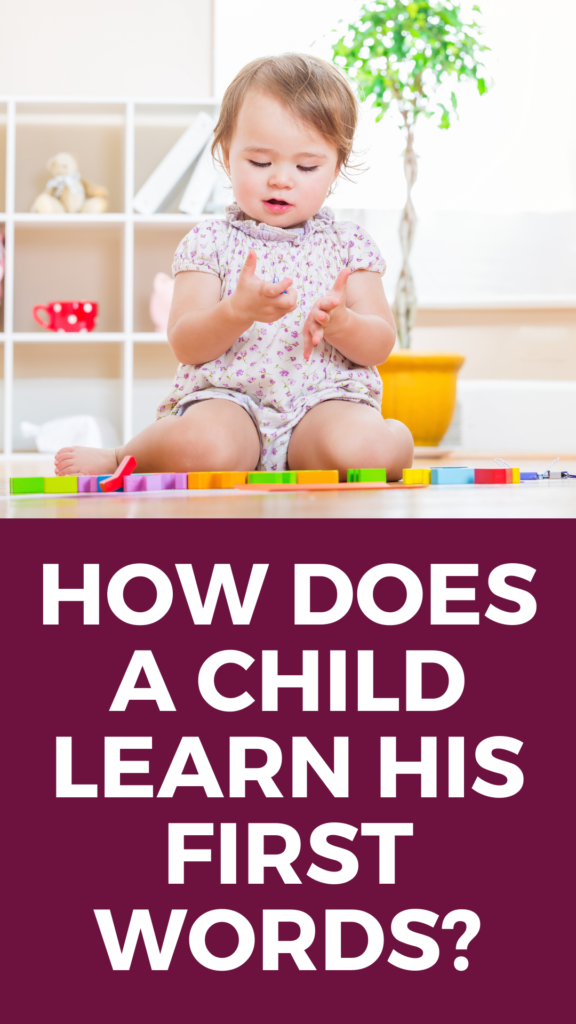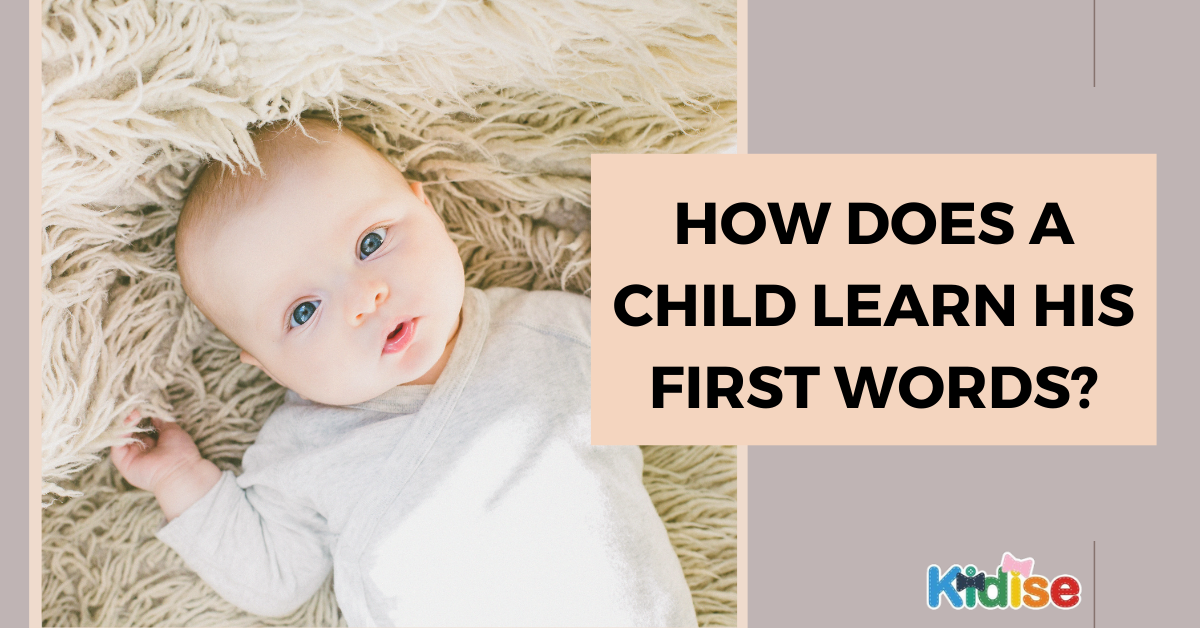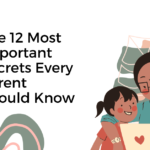Have you noticed a child making noises, babbles, and cries but isn’t speaking a meaningful word? Are you wondering when do children speak their first words? When do they get the ability to express themselves with proper words? In this article, I will tell you everything about when does a child speaks his first words and the science behind learning to speak those words. This will help you to know the correct timeline of your child’s first words and how you can help him in the process of learning first words.
When do babies say their first word?
The first expressed activity of a newborn is crying. It is how a baby uses his vocal cord for the first time. Then, around six weeks, the baby will begin making meaningless sounds. At twelve months of age, babies begin to say their first significant words.
How do children learn their first words?
Children don’t speak the meaningful word at the start, it is a long process involving understanding, making meaningless sounds then relating objects with words. When the baby’s age is 2 months he started making vowel sounds like aa, ii, and oo. In around six months, the baby starts to produce sounds that are consonant-vowel pairs like maa, bee.
Between twelve to twenty months of age, children utter their first meaningful words. Moreover, they produce continuous modifications of those words during their early year of talking. As they proceed to say more complex expressions, they add grammatical essentials– prefixes, suffixes, and prepositions.

Do parents teach their children to speak first words?
Children learn words without any formal teaching. Parents don’t need to formally teach their children to talk; they can perform an important role by simply interacting with their children. Easy and simple words should be used for communication with the child. Babies learn words through interaction with their parents and other children.
From birth, interact with your child and treat them as they are talking to you. As your child starts babbling, waving, or pointing to a certain thing you can simply respond to their attempt of interaction. When you pay attention and reply to your child, it helps them to keep interacting and learning words.
How does a child learn his parent tongue?
Children learn things from their surroundings. All children who grow up in normal interactive households will learn the language that is being usually used around them. It is easy for a child to learn more than two languages at the same time if he is surrounded and interacting with speakers of those languages.
How can we help our child in his early learning process?
Listening to a child’s first words is the most exciting and thrilling experience for the parents. The joy when the baby speaks for the first time is unexplainable. We can help our children in different ways in their learning process.
- Interact with your child, respond to his gurgles, and if he is pointing out to certain thing, talk to him. For example, if he is pointing to an apple, bring the apple close to him and tell him that it’s an apple. When you finish telling him, wait and give your child a turn to respond.
- If your baby tries to imitate the same sound you do, repeat the word.
- When your baby babbles, copy the sounds he is making. The baby will become more interactive as he will get your attention and response.
- Don’t scold them for speaking jargon words. In early-stage, a child won’t be remembering everything. If he imitates the word apple today and speaks it correctly that doesn’t mean he will remember it tomorrow. Repeat the same words regularly it will help your baby to remember words.
- Ask your baby simple questions. Over time, children learn to nod so that will also help them to interact by nodding at your questions.
- Reading is the key to linking pictures with spoken words. Show your child an apple’s image in a book and read it aloud simultaneously. It will help him to remember the image and sound of that word simultaneously.
Remember that children have their own timeline of learning language, and the best way to help is to speak, sing, and talk to them. Read the colorful book with them and appreciate the whole process of language development. During your child’s learning process, you can simply enjoy their gurgles, coos, and jargon words. Interact with them and let them learn things in their way. Your job is to see how this whole learning process unfolds with time and what efforts you can do to boost your child’s capability to communicate.
Want a beautiful gift for your kids? CLICK HERE




GIPHY App Key not set. Please check settings